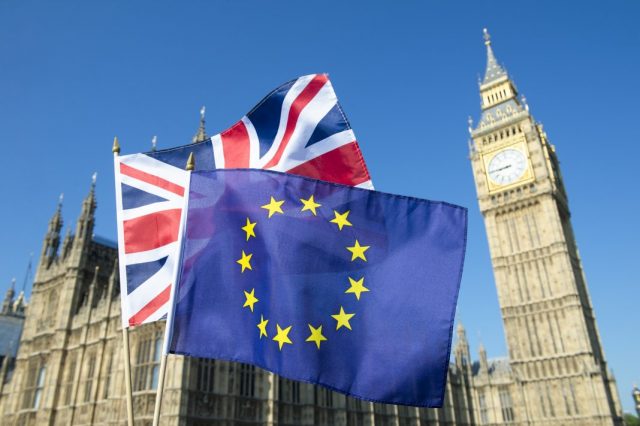2019 has been “a difficult year for freelancers” so far, a recent survey published by independent contractor trade body The Association of Independent Professionals and the Self Employed (IPSE) has said.
Their latest quarterly Confidence Index survey indicates that 12-month temporary contractor confidence rose slightly but remained low at minus 6.1 per cent in the first quarter of the 2019 tax year – meaning a small majority of contract workers believe the outlook of hiring a contractor will worsen – with Brexit policy (or a lack thereof) and government policies on taxation and regulation being cited as the main reasons for the lack of confidence.
Contractors’ average earnings declined by 17 per cent from the previous quarter, a drop which was blamed on falls in both contractor demand and daily rates. The report asserted that business investment projects often decide to hire a contractor in their company formation, but this has largely been put on hiatus until the resolution of Brexit. Demand for contractors business, which rarely varies, is now at its second lowest level on record, with contractors being on assignment for 75 per cent of the time on average.
With the three-month contractor confidence index at minus 0.7 per cent, in addition to the twelve-month index of minus 6.1 per cent, the report warns of a “recession” in the independent contractor sector being a possibility for the second time in 24 months. A recession is defined as two consecutive quarters with a negative growth in rates.
This quarter saw a drop in the weighted average daily rate, a combined measurement across all occupational categories, with the average rate falling by 15 per cent from £474 to £405 per day.
Rates fell across all three occupational categories but the drop in pay rates was most severe for managers, company directors and senior officials (category SOC1), with rates falling by 28 per cent, from £625 to £489.
Rates for professionals (category SOC2) and associate professionals and technical (category SOC3) also fell, albeit marginally, with SOC2 rates falling by 7.3 per cent, from £533 to £494, and SOC3 rates falling by 5 per cent from £280 to £266.
Annualised average independent contractor earnings before taxes dropped from £99,104 per annum in the previous quarter to £81,896 in the first three months of 2019.
The report warns that employer costs are likely to rise by up to five times the level of inflation over the next twelve months, and with rates only likely to rise by a modest 3.4 per cent, this could mean a further squeeze on the money the companies earn and expenses incurred. The report’s summary said: “Freelancers have demonstrated in the past their ability to thrive through their own business initiatives and therefore, if Parliament can create a more conducive business environment, there is no reason to believe they wouldn’t be able to do that once again.”
Whilst Brexit was cited as one of the main reasons by temporary workers for the gloomy economic outlook, higher-earning contract workers actually ranked Government fiscal policy and Government regulatory policy as higher factors, responses which could be interpreted as the responsibility of the controversial Loan Charge tax and the forthcoming roll-out of the Off-Payroll regulations to the private sector, respectively.
The report’s Executive Summary suggests that contract workers are well-positioned to be reliable bellwethers of the economy: “Freelancers are fairly astute forecasters of economic performance as they are in [a] privileged position in terms of access to information. They are typically engaged in investment projects involving growth and innovation and get first sight when firms cut back investment. It is, therefore, notable that prior to the EU referendum freelancers were generally upbeat about the future prospects for the UK economy but have been extremely downbeat ever since, reporting categorical negative confidence index scores on the economy.”
IPSE’s deputy director of policy, Andy Chamberlain, commented: “Freelancers are clearly extremely frustrated with this Conservative government’s chaotic management of Brexit and business. It should be a stark warning for the Tory leadership hopefuls.
“The ‘party of small business’ has done very little to understand or encourage the smallest firms or the future flexible workforce. Even beyond Brexit, we have seen only small steps on late payment, inertia on parental rights and outright hostility on tax.
“Freelancers are some of the most entrepreneurial and productive people in our economy and they are central to Britain’s business success, whatever happens with Brexit. The new Prime Minister must show the self-employed that they back modern working practices and this £275 billion sector.”
Xenios Thrasyvoulou, founder and CEO of PeoplePerHour, said: “It’s disheartening to hear from the freelance community just how little confidence they have in the coming quarter caused by a combination of Brexit factors and the government’s approach to their policies for freelancers and taxes.
“The next leader needs to recognise the importance of freelancers to the UK economy and prioritise the fiscal policies that impact them.”
The survey is compiled from data from 920 IPSE and PeoplePerHour members who replied to an online survey. The freelancer business performance indicator is used by the Bank of England and other organisations to assess inflationary pressures, overall business confidence and trends in the economy. 33 per cent of respondents were female and the average length of time freelancing across all respondents was 9 years. The average respondent age was 42.
The report can be found here.
7th June 2019.









